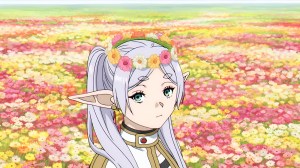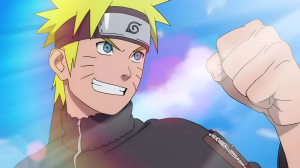There are few modern comics stories with the same impact and lasting popularity as “Planet Hulk”. This 15-issue event has remained a popular read at libraries and seller at comics stores since it was first collected. It has been adapted into an animated film and key elements were utilized in the film Thor: Ragnarok and both of the television series The Super Hero Squad Show and Hulk and the Agents of S.M.A.S.H. By all standards and definitions in the modern superhero market, “Planet Hulk” was and remains an absolute hit.
Videos by ComicBook.com
The story recently received a sequel in “Planet Hulk II” when Amadeus Cho, now filling the role of Hulk, was returned to the planet Sakaar. The broad strokes of the story were repeated with Cho battling a tyrannical warlord in order to free the planet before returning to Earth for the current storyline “World War Hulk II”. With more than a decade between these two stories, it’s time to take a look back and examine what made “Planet Hulk” so popular at the time and an enduring Hulk story to this very day.

An Event Contained to One Title
Many readers take the Marvel event model for granted now, but it was just beginning to emerge when “Planet Hulk” was being published. “Avengers Disassembled” and House of M had shown how successful these large crossovers could be, but the annual cycle and some of the truly outstanding sales figures were still to come. “Planet Hulk” was published at the same time as Civil War, the event that most definitively set the standard for every event to come over the next decade until now. They make for an excellent contrast to one another as well.
Civil War was composed of seven core issues in a distinct mini-series, but the entire story is found in more than 100 comics when miniseries and tie-ins are included. It was a massive event with only the highlights being covered in the core issues. This was a sales bonanza for Marvel Comics at the time, and one they’ve tried to replicate on at least an annual basis ever since to diminishing returns. “Planet Hulk” on the other hand was contained almost entirely to the Incredible Hulk between issues 92 and 105. The only extra purchases to be found were Giant-Size Hulk #1 and a guidebook. Readers got everything they could possibly want without using a checklist or tracking down titles they wouldn’t ordinarily purchase.
That questions the definition of event to some degree, but “Planet Hulk” was most certainly an event. Advertising treated it like an extraordinary story, and that’s how it felt when read on a monthly basis. The scope and consequences of what happened were massive. An entire planet’s history was at stake, and there was an enormous cast of characters, including guest appearances from the likes of the Silver Surfer. “Planet Hulk” provided an alternative and superior event model to Civil War in regards to storytelling.

An Immersive Landscape and Story
The biggest difference in that comparison is that “Planet Hulk” obviously did not take place on Earth. There was just as much attention paid to exploring the ecosystem, culture, and history of the planet Sakaar as the titanic battles between Hulk and the Red King. While Marvel readers might take the history of the superhero universe for granted occasionally, there was no way to avoid the immersive experience of this story.
One of the genius elements of Greg Pak‘s plotting was how he slowly dished out information. Hulk begins as a gladiator able to only see a small fraction of life on Sakaar. It allows him (and readers) to understand the oppressive government and meet the many peoples of the planet. When Hulk breaks out and is drafted into a rebellion, there is already plenty of base knowledge to build more information about Sakaar’s religions and myths, as well the landscapes of the planet. It’s only as the story reaches its climax that it becomes clear just how much has been built over the course of the event.
Carlo Pagulayan’s designs for both Sakaar and its many alien races struck a chord as well. Some like Korg are connected to classic Marvel comics, but others like Miek were brand new. Both of these characters and many others have found their way to all forms of media related to Marvel Comics. The Sakaar of Thor: Ragnarok featured both characters along with a city and landscape very similar to the one found in the comics. It’s a testament to the incredible world of “Planet Hulk” that it has found its way to so many new audiences since publication.

The Heart of the Hulk
“Planet Hulk” is a great sci-fi odyssey, but it’s ultimately a Marvel superhero story at the end of the day. That means it lives and dies by the strengths of its hero, and there are few better Hulk stories than this one. So many narratives about this particular character are wrapped in his origins. They focus on the tormented nature of Bruce Banner and the rage-monster inside, revisiting the themes of Robert Louis Stevenson’s Dr. Jekyll and Mr. Hyde without moving much further. “Planet Hulk” is a story that treats Hulk as more than a monster and focuses on what kind of environment would permit this half of the character to thrive.
Hulk is the right person in the right moment on Sakaar. He is treated as a destined hero, the Worldbreaker, due to his incredible strength. It’s the Hulk’s attitude that makes him a hero though. His rage in response to injustice or hurt loved ones allows him to overthrow a dictator and provide opportunities to others. Rather than viewing anger as an inherently negative trait, “Planet Hulk” reshapes the context to show how valuable righteous anger can be. The transformation of Hulk from feared monster into beloved savior makes for a great character arc.
That is the key to how “Planet Hulk” became one of the modern classics of Marvel Comics. It took one of their oldest characters and found the most heroic narrative possible. Like so many great superhero comics of the past, it provided an inspiring story and gave readers someone to root for. This is truly the Hulk story that has it all: an epic scope, wild new ideas, and a great hero at its heart. More than ten years after its debut, “Planet Hulk” is still an all-time great Marvel event, and that won’t likely change any time soon.








